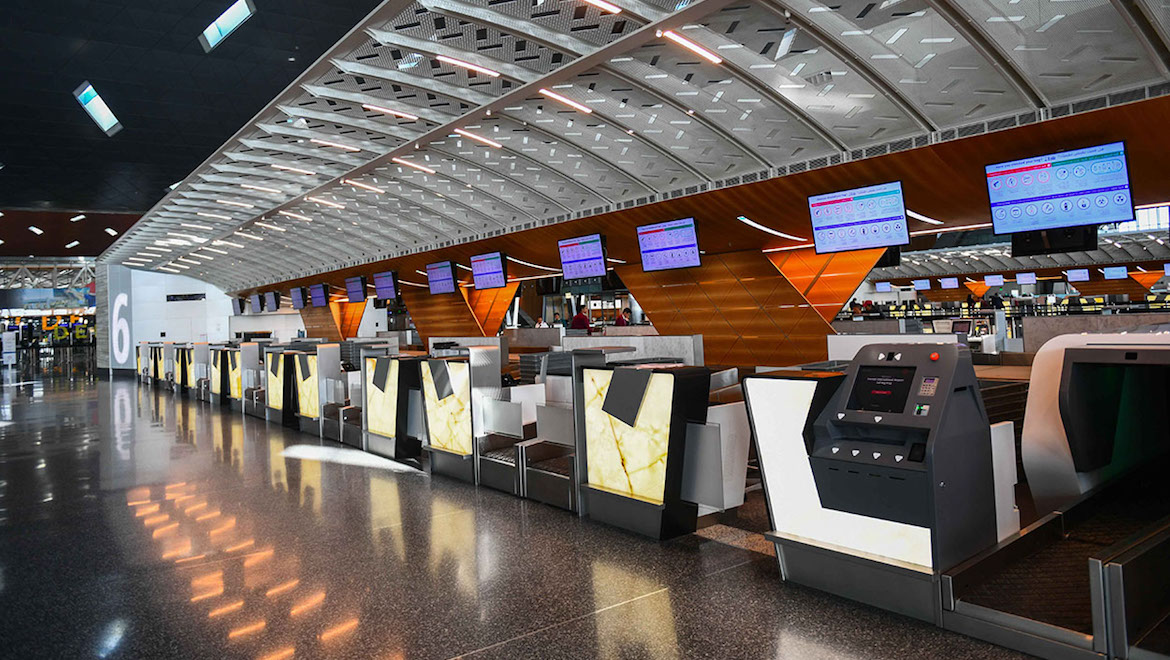
A coalition of airport users has backed calls for reforms to the way airports are regulated in Australia.
Industry groups representing retailers, airport parking operators, ride sharing providers and rental car companies have joined airline lobby group Airlines for Australia and New Zealand’s (A4ANZ) push for an arbitration scheme to resolve disputes when an airport and airport user were unable to reach agreement on a pricing regime during negotiations.
On Tuesday, they issued a joint statement urging the federal government to consider a more appropriate regulatory approach than the status quo “for the good of Australian consumers and the economy”.
“We need a regime that encourages innovation and efficiency and we don’t have that right now,” A4ANZ chief executive Alison Roberts said in the statement.
“Instead we have costly, protracted negotiations, and some airports making super-profits – at nearly three times the rate of the banks.”
The industry groups putting their name to the statement comprised the Board of Airline Representatives in Australia, the Australian Retailers Association, Australian Finance Industry Association, Commercial Passenger Vehicle Association of Australia, Ride Share Drivers Association of Australia, International Air Transport Association and Regional Aviation Association of Australia, as well as the Andrew’s Airport Parking company.
The statement comes as the federal government continues to review the Productivity Commission’s final report from its inquiry into the economic regulation of the nation’s airports that began in 2018.
The Productivity Commission said on its website the final report was handed to the federal government on June 21 2019.
“Under the Productivity Commission Act 1998, the government is required to table the report in each House of the Parliament within 25 sitting days of receipt,” the Productivity Commission said on its website.
The draft report, published in February 2019, said the existing regulation of airports benefitted the community and remained fit for purpose.
Further, it said Australia’s largest airports – Brisbane, Melbourne, Perth and Sydney, which were subject to monitoring by the Australian Competition and Consumer Commission (ACCC) – had not systematically exercised their market power to the detriment of the community.
It also rejected calls to introduce a compulsory arbitration scheme to resolve disputes between the airlines and airports when the parties could not reach agreement on a pricing regime during negotiations. A negotiate-arbitrate framework would have few benefits and many risks, the draft report said.
Board of Airline Representatives in Australia executive director Barry Abrams said the draft report’s recommendation to conduct more monitoring would change little.
“We fail to see how a revamped airport monitoring report will deliver any useful improvement,” Abrams said.
“It will not change the assignment of commercial accountabilities between the airport operators and international airlines, which underpin the problems in airport services we see today.”
International Air Transport Association regional vice president for Asia Pacific Conrad Clifford said strengthening the economic regulation of Australia’s airports was long overdue.
“It is a fact that the current light-handed regime of economic regulation is ineffective in protecting the interests of airlines, passengers, and the people and businesses accessing the terminal precinct,” Clifford said.
“With the aviation industry being an important economic contributor, supporting over 700,000 Australian jobs, and contributing $69 billion or 5.5 per cent of the country’s GDP, the Australian government needs to put in place policies that support the sustainable development of the industry and its contributions to the Australian economy.”
A4ANZ has noted previously calls for a negotiate-arbitrate framework was standard commercial practice in many other sectors of the economy.
And Commercial Passenger Vehicle Association of Australia president André Baruch said this arrangement had worked well.
“All we’re asking for is for the same to apply to airports: an open, transparent and inclusive process,” Baruch said.
Australian Retailers Association executive director Russell Zimmerman said it was “hardly the time for the government to endorse the Productivity Commission’s recommendation that permits airports to continue to charge monopoly rents unchecked”.
“Compared to traditional shopping centres, there is a lack of transparency on lease terms at some airports, and airport rents are much higher,” Zimmerman said.
“But there is no scope for negotiation on terms and conditions, and many airport lease clauses prohibit retailers from speaking out.”
A Productivity Commission commissioner, Paul Lindwall, defended the draft report in a speech to an Infrastructure Partnerships Australia Industry event on March 19.
Lindwall said the four largest airports of Brisbane, Melbourne, Perth, and Sydney “had market power, but they were not exercising or exploiting that market power”.
“The mere fact that an airport has market power is insufficient to justify more heavy-handed regulation,” Lindwall said, according to a transcript published on the PC website.
“To increase regulation, we would need to find that the airport was using that market power in a way that resulted in harm to the community.”
The Australian Airports Association (AAA) noted in March it was the sixth time the Productivity Commission had rejected calls for an industry-specific arbitration of access to airports.
Further, the AAA said the existing regulatory arrangements were delivering positive outcomes for the community and industry.
“In the absence of any systematic abuse of market power, the creation of new mechanisms would simply promote gaming and risk perverse and inefficient outcomes,” the AAA said in March.
“Further, any arbitration framework would deliver insignificant benefits which would not cover the costs of such an arrangement.”















